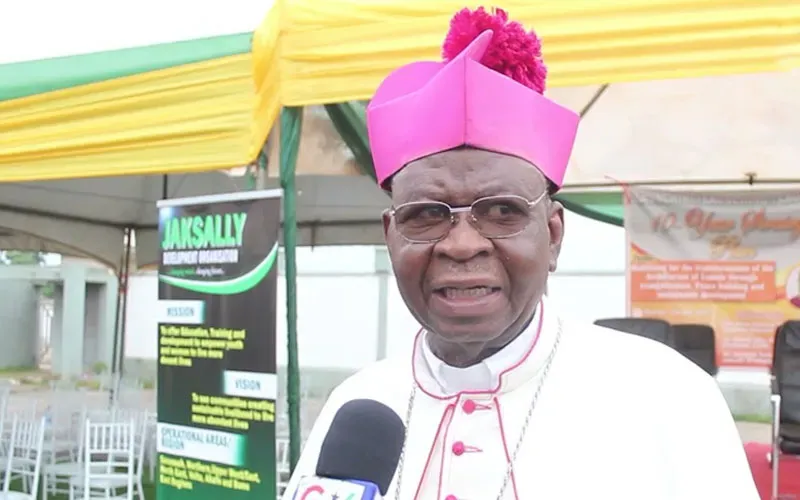Bishop Naameh added, “Poverty and rising inequalities have fostered a culture of hopelessness in our Ghanaian communities, and this has contributed to the recruitment of many of the youth into violent activities, putting the countries in the Sahel at risk of external attacks.”
“There is an urgent need for African governments to distribute development fairly among all groups to avoid widespread perception of discrimination and exclusion among the citizens, to strengthen the peace and social cohesion,” further said.
The Local Ordinary of Ghana’s Tamale Archdiocese continued, “The high unemployment, corruption and unequal access to capital leading to unrest in some Sahelian countries also affected Ghana.”
“Once we create this vulnerability for our youth and many of our citizens, then, we invite the conflict even without intending it,” the 74-year-old Ghanaian Archbishop who has been at the helm of Tamale Archdiocese since February 2009 said during the October 4 event.
Evidence of conflicts that have resulted from the creation of vulnerability among the youth in Africa, he said, are “the reported incidents of activities of extremists in some neighboring countries like Mali, Niger, Burkina Faso and along some border communities in Northern Ghana, giving widespread perception that governments in the Sahel are failing to provide critical social services.”
The Catholic Archbishop who started his Episcopal Ministry in May 1995 as Bishop of Ghana’s Damongo Diocese said it was “a big scandal for the majority of the citizens to be discriminated against when it came to the distribution of development projects.”
“Leaders must be committed to the common good of the people,” he further said, adding that it was imperative for governments to “work with local communities and civil society organizations including religious leaders, to rebuild trust in local and national institutions and rekindle civic participation.”
Also speaking at the October 4 event, the Local Ordinary of Ghana’s Navrongo-Bolgatanga Diocese noted that the launching of Phase II of SPI was timely considering the current instability in Ghana’s Upper East Region, “with many lives and properties being lost to ravaging conflicts.”
“Through the Sahel Peace Initiative, the Church in accordance with her moral duty will continue to advocate peace, to speak to those who have the conscience, but we also expect and indeed we demand that the government live up to her constitutional responsibility to restrain the heartless from destroying innocent lives and property in our region,” Bishop Alfred Agyenta said.
Jude Atemanke is a Cameroonian journalist with a passion for Catholic Church communication. He holds a Bachelor’s Degree in Journalism and Mass Communication from the University of Buea in Cameroon. Currently, Jude serves as a journalist for ACI Africa.








